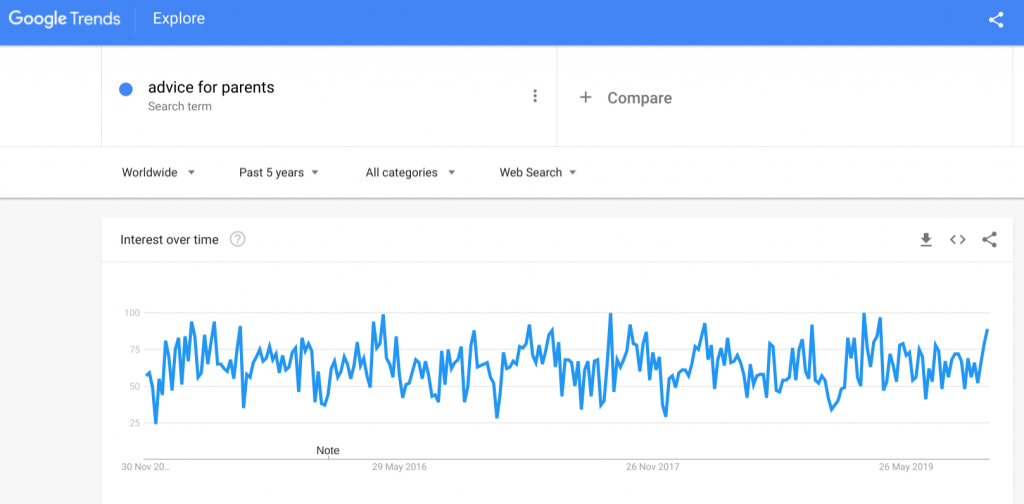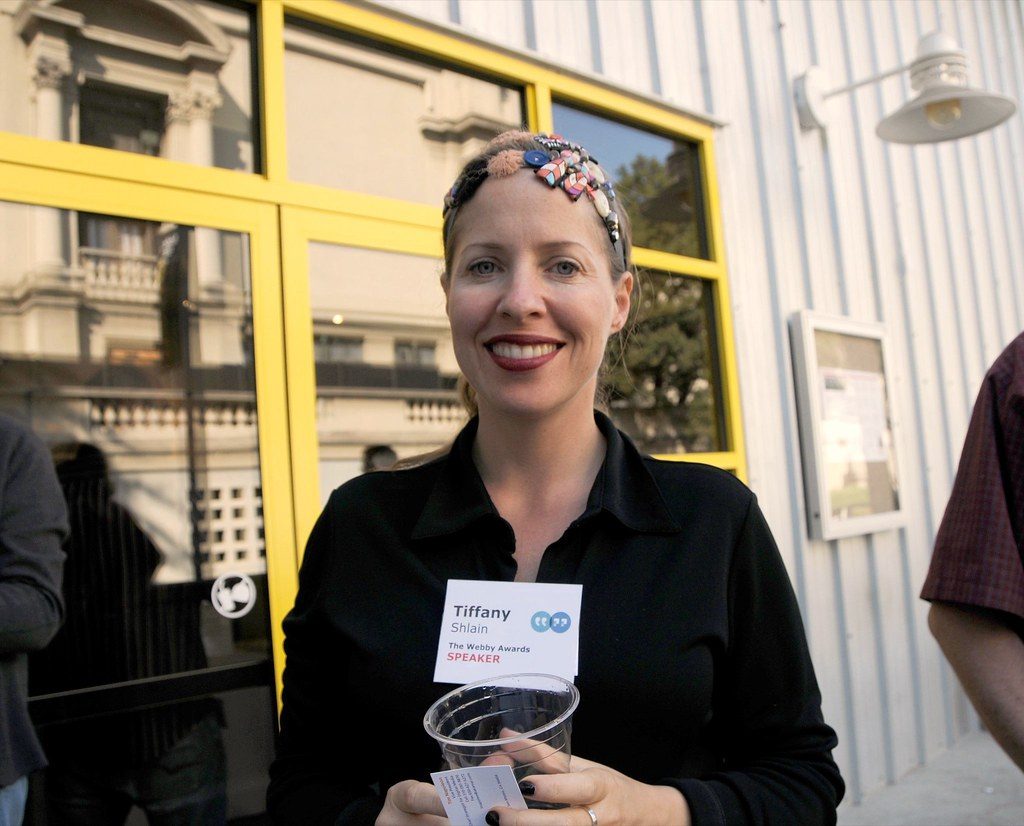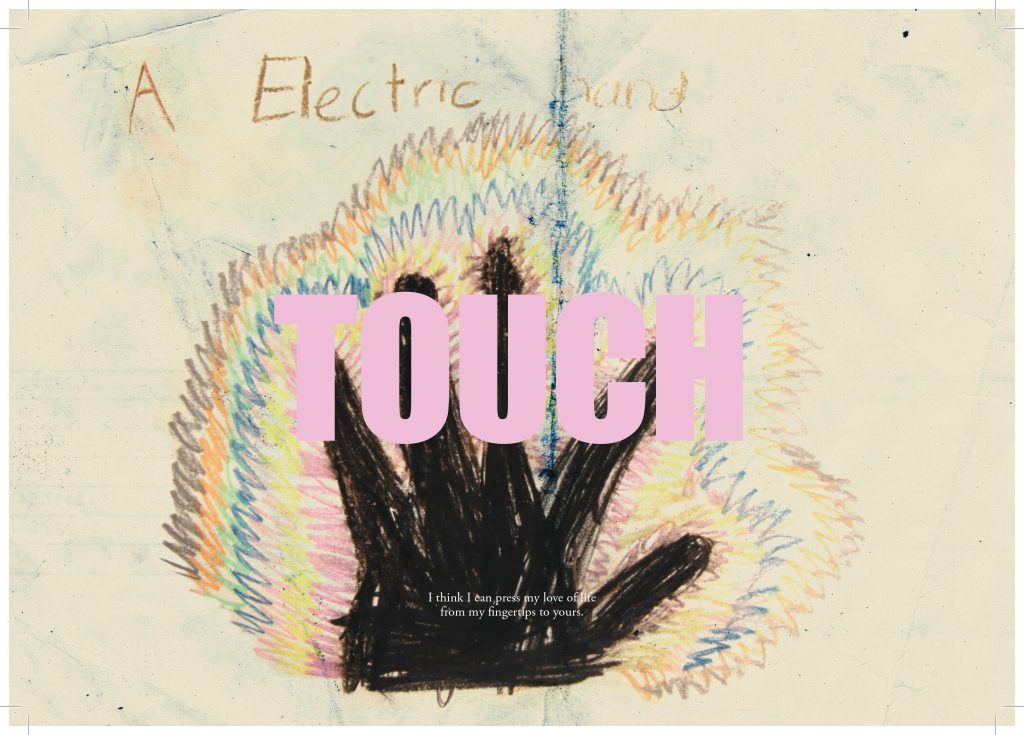I’m pretty sure that parenting today is far more busy than at any other times in human history. Conversely, advice for busy parents must be at an all-time high. At the heart of the busyness is the unprecedented amount of information with which parents deal. This is a result, of course, of ever-increasing internet speeds.
Theoretically, at least then, parents have access to the most up-to-date information on parenting skills and responsibilities. Reading parenting magazines, for instance, give the overwhelming impression that all knowledge must be a virtue. Or, put bluntly, knowing what to do must equate to doing the right thing. Is this the reason, for instance, why there’s so much blame also levelled at working parents?
Advice for busy parents is an industry
If you have any doubt about the fact that parental advice is not a trending topic online, just look at Google Trends. The website shows how frequently a given search term is entered into Google’s search engine relative to the site’s total search volume over a given period of time. The following graph shows the worldwide trend in the use of the search term over the last five years.

Ironically, as parents face the online ‘information tsunami’, they seem to be also expected to confront their children’s growing obsession with screens, not to mention the issue of cyberbullying. In the face of both anxiety and high expectations, what can parents do? We believe there’s a double-barrel answer. The first is to calmly and surely find a way of finding great information online. And secondly, dare to have fun with while storytelling and reading to your children.
Parents in charge again
I’ve been following New Yorker filmmaker and mother of two, Tiffany Shlain’s creative work for the last seven years. I’m an admirer of her proactive stance to address the quality of her family life since 2012 when she wrote her TED Book Brain Power. I remember being immediately taken by the strengths of both her logic and imagination’.
In effect, she proposed that “the technology we create is a direct extension of us, not something separate.” There was beautiful dignity in her understanding of parental skills in the home, as well as in her professional life. She wrote that as human beings we have been constantly striving to extend our reach. When we couldn’t see far enough, we made the telescope. The telephone came as a result of want to exceed the human voice’s shouting distance. Our desire to travel to a far-off place in a short period of time was behind the invention of the aeroplane. When we needed to connect data, we developed the Internet.
…Since its arrival, the Internet has evolved to do so much more than just connecting data: It now links ideas, knowledge, feelings, emotions and memories among people all over the world. The Internet, is, in many ways, an extension of our brains, – an extension of us.
Advice for parents that’s breathtaking to read
As an educator, I was particularly impressed with Tiffany Schlain’s analogy of today’s internet to that of an infant’s brain. Through evidence from the MEG Brain Imaging Center at the University of Washington’s I-LABS, she makes the case for its extreme neuroplasticity. As the baby’s brain needs attention, so does
the metaphoric first 2,000 days of life for the Internet… we need to pay close and careful attention to developing its brain…and spend time to develop the Internet in the best way possible.
Far from any Luddite approach, Brain Power is a deeply ethical approach to take back control of the internet’s development. Not the least, it means dealing with the toxic stress of remaining always online at the cost of the breakdown of our family and social connections.

Tiffany Schlain’s creative projects are all on equity, neuroscience and the delicate art of global relations through her website LET IT RIPPLE STUDIO. To achieve these, she has developed ‘cloud filmmaking’ as a new kind of artistic manifesto. Using film, technology, discussion materials, and live and virtual events she engages people in conversation. Taking on actions around complicated subjects that are shaping our modern lives, her films put an informed 21st-century lens on topics that bind us together.
… Over the past ten years, we have had four films premiere at Sundance, have won over 80 awards and distinctions, and have had four films selected by The U.S. State Department to screen at embassies around the world to foster dialogue across borders. We’ve created and distributed 31 films, engaged over 50 Million people in dialogue, and pioneered a new way of making films we call “Cloud Filmmaking,” where we make films collaboratively with people all over the world.
What tiffany does to switch off
Remarkably, throughout all her rich interactions with technology, Tiffany and her family have been turning off all screens for one day a week for what they call their “Technology Shabbats,” or “Tech Shabbats.”
Every Friday night, we all unplug from all of our technologies and don’t turn them on again until Saturday evening. Unplugging for a day makes time slow down and makes me feel more present with my family. I not only appreciate this quality time with them, but it has also made me appreciate technology in a whole new way. By Saturday night we can’t wait to plug back in.”
In 2019, Tiffany has published her story of how she has implemented this feat. She promises to bring together “the bigger picture of the past, present, and future of technology and humanity” to reflect where “we are now and what we need to change, as individuals, and as a society”.
It is Tiffany’s sense of creativity at the heart of her family life which I most appreciate and applaud. Since 2012, as each one of my own children became parents, I made sure they knew of her work. Here’s just one elegantly inspirational example.
A Break for busy parents
Subscribe to our mailing list and receive inspiring stories of how parents creatively manage to tackle their busy lives.

